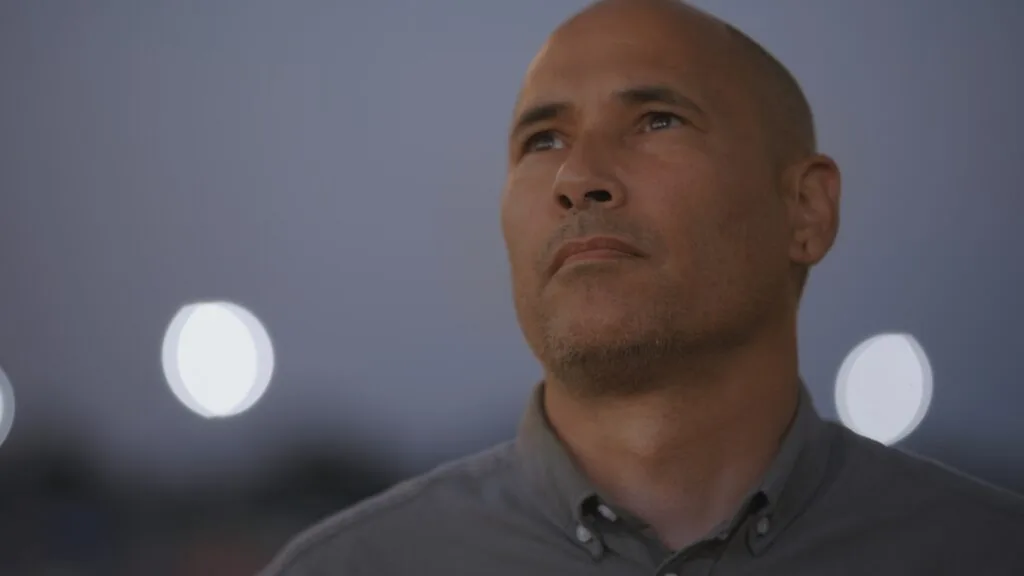A.C. Thompson on Antisemitism and Right-Wing Extremism

February 3, 2023
As FRONTLINE marks 40 years on the air, editor-in-chief and executive producer Raney Aronson-Rath is hosting conversations with the journalists and filmmakers behind some of FRONTLINE’s most groundbreaking work.
A.C. Thompson is a reporter for ProPublica who has been a correspondent with FRONTLINE since 2010. He joins The FRONTLINE Dispatch to discuss his years of reporting on right-wing extremism for award-winning films like American Insurrection and the series Documenting Hate in light of recent high-profile incidents of antisemitism.
“Over time, if you were following the key sort of white nationalist and right wing extremist talking points, you saw more and more antisemitism coming through,” Thompson told Aronson-Rath. “What I think you’ve seen since then is sort of a quiet but steady uptick in antisemitism and now it’s bursting onto the scene.”
Thompson also reflects on the unique investigative collaborations he and FRONTLINE developed over the years, and previews what he’s working on in 2023.
Want to be notified every time a new podcast episode drops? Sign up for The FRONTLINE Dispatch newsletter.
Latest Documentaries
Explore
Policies
Teacher Center
Funding for FRONTLINE is provided through the support of PBS viewers and by the Corporation for Public Broadcasting, with major support from Ford Foundation. Additional funding is provided the Abrams Foundation, Park Foundation, John D. and Catherine T. MacArthur Foundation, Heising-Simons Foundation, and the FRONTLINE Trust, with major support from Jon and Jo Ann Hagler on behalf of the Jon L. Hagler Foundation, and additional support from Koo and Patricia Yuen. FRONTLINE is a registered trademark of WGBH Educational Foundation. Web Site Copyright ©1995-2025 WGBH Educational Foundation. PBS is a 501(c)(3) not-for-profit organization.



















